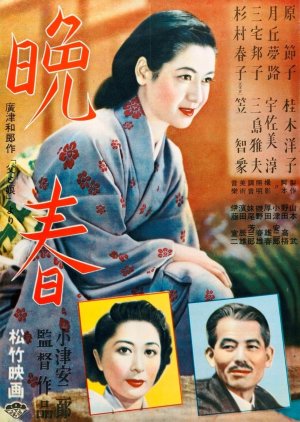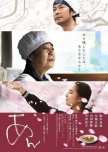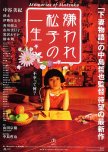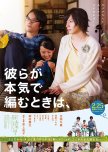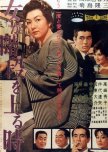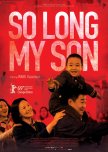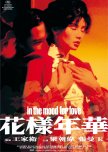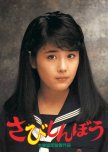
"Happiness comes only through effort"
Late Spring was the first film by director Ozu Yasujiro I ever watched. I had no idea who he was or anything about films from this era. For the most part, I was unimpressed. After watching Late Autumn which was a loose remake of Late Spring, I decided it was time to revisit one of Ozu’s classics.The plot is deceptively simple. Noriko is 27 years old and on the cusp of being too old for marriage. She and her widowed father have a comfortable relationship neither wants to change. It is an aunt who shakes things up by insisting on finding her a husband.
Ozu often focused on this transitional part of family life-a child on the verge of leaving and an aging parent facing loneliness. Noriko's familiar routine started to ebb away as her father came to terms with what was necessary for her future which begat sadness and grief. Noriko had become too much of a surrogate wife and needed to become a real wife with a real husband which would require her to leave the nest as children do. Her father recognized he would not always be around and the only way to protect her and secure her happiness was to marry her off.
Though the mother had died some time ago, her presence felt tangible. Noriko showed great jealousy when her father mentioned he might remarry. She felt men remarrying was “filthy” and “indecent”. Apparently, older people no longer required companionship and intimacy. Noriko seemed overly involved and attached to her father. “I’m the only one who knows what he needs.” Was she upset for her mother’s sake or her own? During a Noh performance, her feelings shown through when she saw the perspective woman was also attending. Ozu’s astounding ability created a deeply emotional scene simply by cutting back and forth between the characters’ reactions to each other and the performers. During another evolutionary moment as daughter and father were lying side by side, Ozu focused on a vase for long seconds as Noriko processed her emotions and gave the audience the same meditative chance.
Ozu’s skill and his ability to compose exquisite frames was, as always, impeccable. Where I struggled with Late Spring is what caused me to stumble last time---Hara Setsuko’s performance. Her overly bright smile for the first half of the movie could be disconcerting. Sometimes a smile hides a person’s pain and sometimes it hides a vacancy sign. Smiling while riding a bike and enjoying the moment seemed natural, smiling when taunting the professor for being “filthy” seemed strange. She is a much admired actress and while I have enjoyed some of her darker performances, too often she over-relied on her smile. The second half had her character behaving petulantly and pouting which seemed out of place for a grown woman who had survived forced labor during the war.
As a modern viewer these plots were uncomfortable and I had to continually remind myself this was 1949. A woman was basically sent from her father’s house to another man’s house with little say as there weren’t many other options available to her. Noriko’s father complained that daughters were pointless. “You raise them and they leave. If they don’t marry you worry and if they do you’re disappointed.” Noriko worried her father would be helpless without her. Modern me thinks her father would learn to pick up the clothes he casually dropped on the floor himself and pour his own glass of water while brushing his teeth.
Despite my reservations, Ozu knew how to incorporate the most basic concepts of life and make them interesting. Noriko’s father, expertly played by Ryu Chishu, grasped that loneliness and death were a part of life and he wanted his daughter’s future taken care of. The plot might have been simple but Ozu was a master of teasing out the buried emotional details of changing family relationships. I rated this higher than my first watch and perhaps in the future, I’ll appreciate it even more. The father’s speech to Noriko was memorable then and now, one of the strongest from any Ozu film I’ve seen and still holds true today.
“Happiness isn’t something you wait around for. It’s something you create for yourself.”
14 February 2024
Esta resenha foi útil para você?

Letting go of an establish life to a new one can be a very scary experience. The time that this movie was set in it was not uncommon for arranged marriages to happen and often between people of different towns.
This show cases a splendid father-daughter relationship where both parties are so concerned for the other they dont realize they are actually just in a holding pattern with their lives.
The movie was acted really well with only one minor detail that may have only bothered me. The Main actresses smile throughout the entire movie just felt so fake. I understand it was supposed to portray a specific facade or mindset, but the actress didnt sell it. Other wise you believe this was a busy-body aunt with well intentions, The friend thats been there done that, and dad who just wants what is best for his little girl.
Mood music typical of the era and rewatch value low because the outcome is known.
Esta resenha foi útil para você?

Time to get married...
Actually I was thinking in the first 10-minutes that I'm not gonna enjoy this because it's a black & white film. But when dialogue starts, this film like give me a rope that makes me slowly enjoy the film.The dialogue feels like a conversations between ordinary people in real life, and I like it. And the plot is great, pretty well organized, even though it was laid out slowly.
I like Chishu Ryu & Setsuko Hara chemistry as Father & Daughter, I can feel the emotion when the marriage topic starts to be cooked, Noriko's unwillingness to get married and leave her father, I understand why she's like that. And then Somiya go home after sent Noriko to wedding and sit in solitude, enough to make my heart tremble.
Esta resenha foi útil para você?

Not All That It Seems
Some reviews of this film really downplay its actual meaning in my opinion. This is one of those films that you really have to watch knowing some aspects of the historical context while keeping in mind the audience this film was originally aimed at.When I first watched the film I initially agreed with some over the absolutely misogynistic premise it seemed to set. Yet I had to take a step back and ask myself who exactly this film was aimed at. I am not a Japanese person; and I am certainly not a Japanese person that has lived through war and then occupation- in which all of my traditions are suddenly being challenged due to new ideas and even new ways of living being introduced BECAUSE of losing a war. Personally, I believe the film is not aimed to stamp down on Noriko personally. It seems the actual idea of the film was to discuss the impacts new ideas bring to different people - especially different people of different generations.
Each character of the film lives differently and embraces tradition and new ideas differently. One has to look at these contrasts - especially in the context of each character's own life versus how they want Noriko to live hers.
Some may find this film slow or ask why it was even made in the first place but... I think it's a gem. At first I was disturbed and slightly annoyed by Noriko's constant smile at the beginning of the film; but seeing how her smile changes throughout the film was actually quite sad and almost disturbing. If anyone is interested in post-war Japanese films I would really give this a try. There is a constant and tangible pull for all the main characters to embrace a new way of living while still trying to hold on to tradition. This is especially seen in how the characters push Noriko to embrace tradition while not necessarily adhering to tradition themselves. Anyway, I really recommend it.
Esta resenha foi útil para você?

Delicate Spring makes way for powerful Summer
What's remarkable about this film is that it appears completely unremarkable. The pace is slow, there's no action, the characters look lethargic, and the dialogue and cinematography involve us with mundane matters and scenes; the music is painstakingly slow - even a tune we all know well, "Wedding March", is slow and somber; there is virtually no excitement; even the trains move slow. It is remarkable how this film kept me emotionally and intellectually engaged for ~2 hours and prompted ample reflection after the film ended.Since this film is a part of the classic film canon, you can easily look up professional critics' and filmmakers' commentary. Consider that so many have put this film in their top 100 films of all time list; that's not an easy list to make! However, I'll share a few thoughts on how I connected with the film.
Consider the title, "Late Spring". The film was inspired by the short story, "Father and Daughter", by Kazuo Hirotsu. The short story title is directly related to the film's characters and plot; we don't get many explicit clues that the story takes place during Spring, so the film title is more evocative than descriptive. So, why not call the film, "Father and Daughter"? I don't know the reasons the filmmakers chose "Late Spring" as the title, but its suggestion to think about the film metaphorically is quite effective.
Noriko and her father, Somiya, are delicate souls, and their relationship with one another is tender in love to an extreme. After father is told by daughter "no play until work is done", the father's impatient response of "go bring the tea" is the comical peak of his anger (if only tiger parents could study this scene). The impending transition of their relationship status from live-in daughter/dad to no longer living with one another signals a change in their 'season' as a family. Daughter and father were happily living in a delicate Spring. With Noriko's upcoming marriage, they quickly move to Summer.
Consider Spring, as a social metaphor, representing individuals' inner thoughts and desires. Spring is our most intimate selves. Like the ephemeral spring blooms of cherries and irises, our Spring selves bloom beautifully. But Summer comes roaring like a lion. Spring is never long enough for us.
Summer is the metaphor of group-level or societal thoughts, expectations, and values. Summer is powerful, (more) lasting (than Spring), and self-assured. Societal and group structures like work, school, and family ask us to 'grow up' and 'ripen' - be practical, be productive, is what society says to us. It's as if they say "Enjoy your spring blooming self, briefly, but not too long; we need crops to feed our society, so please get to work; we needs kids to keep our species going, so please get married; we know what's best so please do what we say".
Doesn't it always seem like Summer is rushing Spring? And Spring is too kind to overtake Winter?
As I watched this film, I was aware of my 'Spring' thoughts/feelings and 'Summer' thoughts/feelings. In summer mode, I bought what dad eloquently said about the cycles of life, how marriage is part of that, and father and daughter must move on from one another. That's the script of societies, of families, of 'normal' human relationships. In Spring mode, what dad says seems forced, manipulative, inauthentic. What's really wrong with Noriko living unmarried with father for the remainder of her days? It seems almost every character besides Somiya and Noriko are happy with the upcoming marriage, even relieved, as if the father and daughter's relationship was overripe and soon to rot. That's the summer thinking.
Many of the relationships in this film can be viewed, in the spring sense, as pure, intimate, and innocent. But switch to summer thinking/feeling, and those same relationships are now viewed as impure, vulgar, and lacking appropriate distance between expected social roles. Noriko's playful relationship with Mr. Onodera (father's friend), can easily be viewed either way; she's having a playful chat with someone she trusts or there's something inappropriate since their age gap is too great, and Mr. O shouldn't be playful with his friend's daughter since he was recently re-married; they even hang out and shop together without Dad's presence/knowledge -- Oh! The scandal! Our initial response to these scenes speak to what season our minds and hearts are in. If you're still not sure what I mean, consider the famous film by Studio Ghibli/Hayao Miyazaki, "My Neighbor Totoro". There's a scene with the father bathing with his two daughters. I'm certain many people will see this as a beautiful, tender, and loving scene, while others, no doubt, will watch uncomfortably believing this is inappropriate. Spring thinking vs Summer thinking is what I'm getting at.
In the final scene of "Late Spring", we're reminded of how precious Spring is to us, especially as we've weathered in life. At the film's end, we see Somiya peeling an apple by himself. His feeling of loss of something never to return is something we all identify with; the gravity of summer and society is simply too strong and much of our inner desires are squashed.
Pause to consider how universal this film is with its seasonal metaphor of loss. This film from 1949, from a country/culture few of us experience directly, is indeed remarkable.
Esta resenha foi útil para você?

